[Original by Yui SHOJI, 2020 Public Relations Intern (March 23, 2021); Translated by M. Kanai/A. Taguchi]
Hello, everyone. My name is Shoji. I am a 2020 Public Relations intern. In this session, I invited Shigeru Kimura from the Public Relations & Fundraising group. He was once a JVC representative in Thailand. He spent more than 10 years in total in Thailand ever since his first visit as a student! He was in Thailand even on the day of his graduation from university. After leaving JVC for a while to launch activities on his own, he later rejoined JVC in 2015. I would like to ask him what international cooperation means to him. Please stay with us until the end!
First, please introduce yourself!
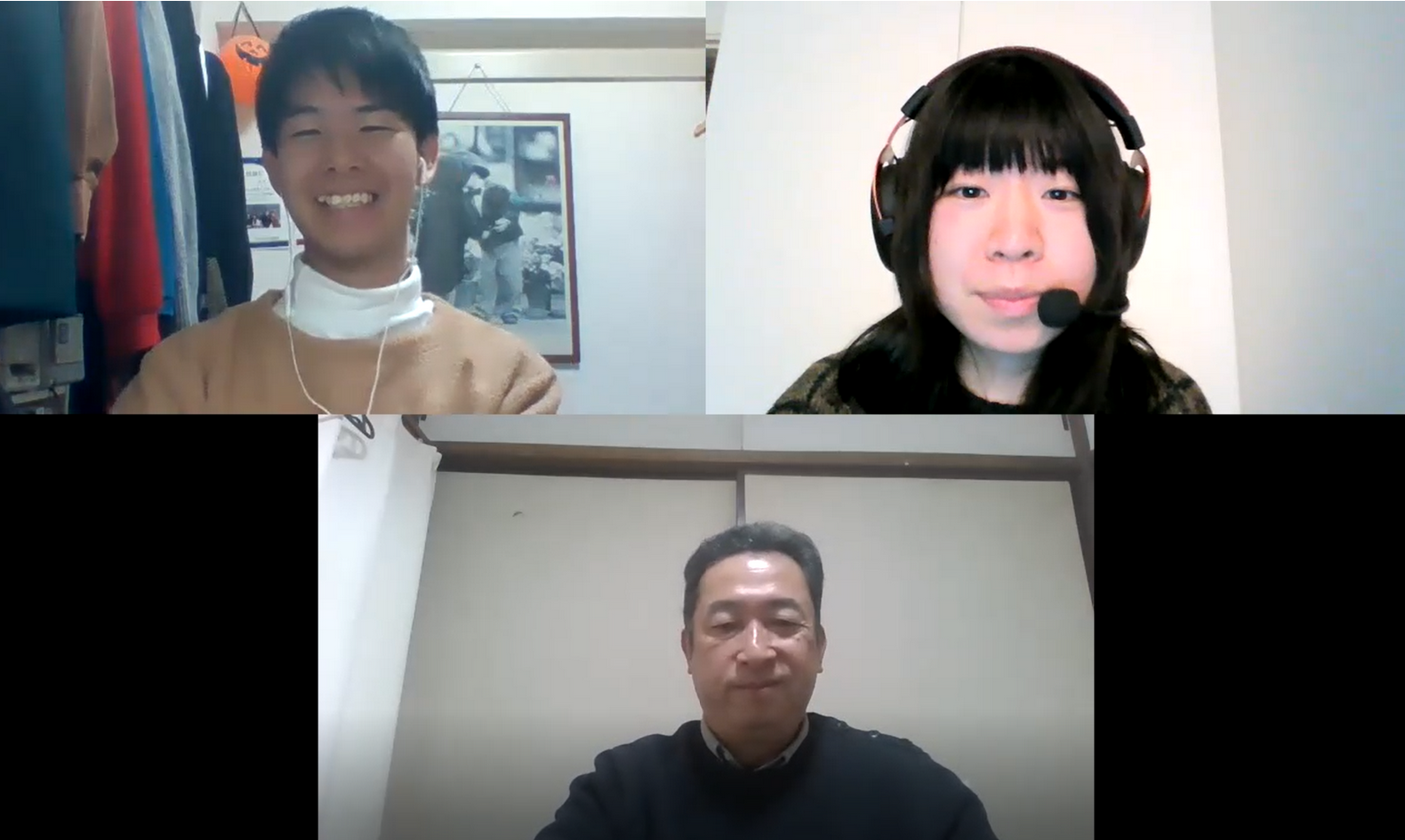
The online interview starts, which always makes me nervous. Kanaoka (top left), Shoji (top right), and Mr. Kimura (bottom).
I was born in 1965 in Suginami, Tokyo. I love mountain climbing since I was in elementary school. In my student days at Waseda University, I belonged to an exploration club. I set a goal to climb all the 3000-meter mountains in Japan before graduation, but a couple of mountains were unfortunately left unconquered. However, through this experience, I learned a lot about the nature of Japan. In the activities of the exploration club, I gained a new mindset by living with Lahu, an ethnic minority in Northern Thailand. It was a great surprise to me that despite different cultural backgrounds and no verbal communication, the villagers accepted me. I came from an urban city in Japan and did not have any value to them. They just accepted me for who I am. This experience made me interested in different cultures and the life of rural villagers. During my undergraduate days, I frequented Thailand and explored the unliberated part of East Tibet while working as a part-timer and climbing mountains in Japan. Then, I enrolled in graduate school to pursue the subjects I developed a great interest in.
After graduation, I worked as a teacher at a university for a while. Then, I joined JVC to have direct contact with rural villagers. After an assignment to Thailand, I left JVC once. But I rejoined JVC in 2015 as a staff member at the Tokyo office in charge of the Laos project. From 2020 onward, I belong to the Public Relations & Fundraising Group.
What was your impression about the life of people in Thailand and Tibet?
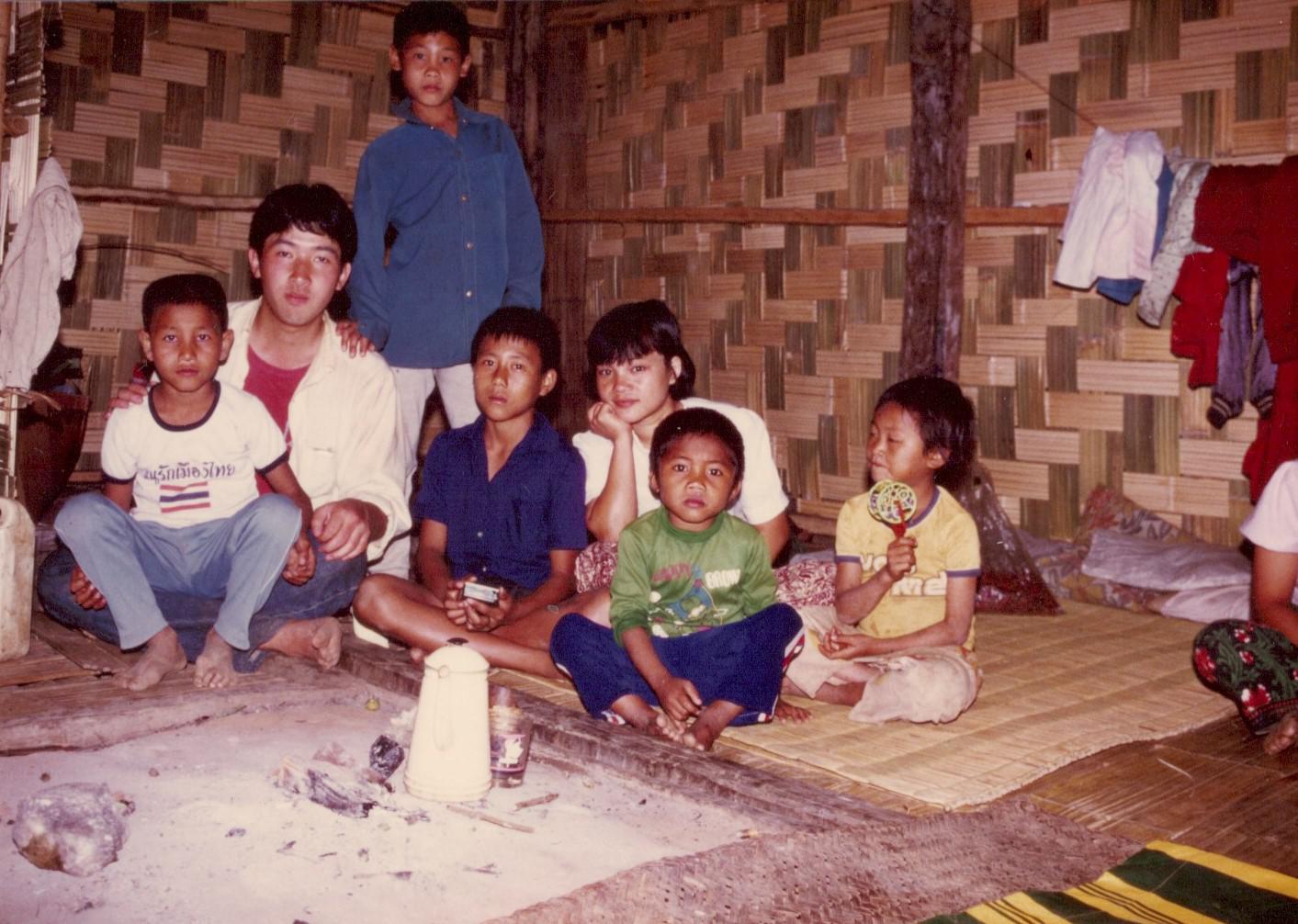
In a Lahu village in Chiang Rai Province, Northern Thailand. He was a first-year university student.
During those days, the minorities living in Northern Thailand did not possess Thai nationality. They were treated unfairly in terms of their legal and political rights. In the border region in Northern Thailand, many people made living by crossing the border. I frequently witnessed conflicts, drug and child trafficking, and murder. All these happenings were astonishing to me. However, the daily life of the villagers was not at all different from ours. I realized that the problem lies with the legislation and social systems which created that situation.
– At first, you didn’t understand their language at all. But as you lived there and consistently communicated with them, you gradually came to understand the situation surrounding them.
Among various ethnic minorities in the region, I was allowed to stay in a village of Lahu. I learned their language by writing down the pronunciation of each word in katakana. Then, I came to know more about Northern Thailand such as the existence of the Bible written in Lahu language using Roman characters. There was once a missionary there. As I realized that Northern Thailand is not a mere hinterland, I made strenuous efforts to learn their language. Finally, I managed to publish a Lahu language conversation booklet at my own expense.
-Isn’t it the first Lahu conversation booklet ever published in Japan?
It’s probably so, although there are some research papers already written by specialists. I am afraid that the number of Lahu language speakers may decrease before the second edition arrives. It is very sad if they lose their own language which is, so to speak, their wisdom cultivated through long years of experiences.
Why did you join JVC?
I have never been interested in getting a job in international cooperation. Although I found the teaching profession very attractive, I wanted to work on-site for rural development. I searched for an NGO where I could use my experiences gained in Thailand, thereby supporting my family. I chose JVC partly because I was acquainted with Mr. Murakami who was involved in the sustainable agricultural activities by JVC at the Nongjok farm.
Then, you left JVC to establish Link, an NPO for linking forest, water, and people based in Chiang Mai, Thailand.
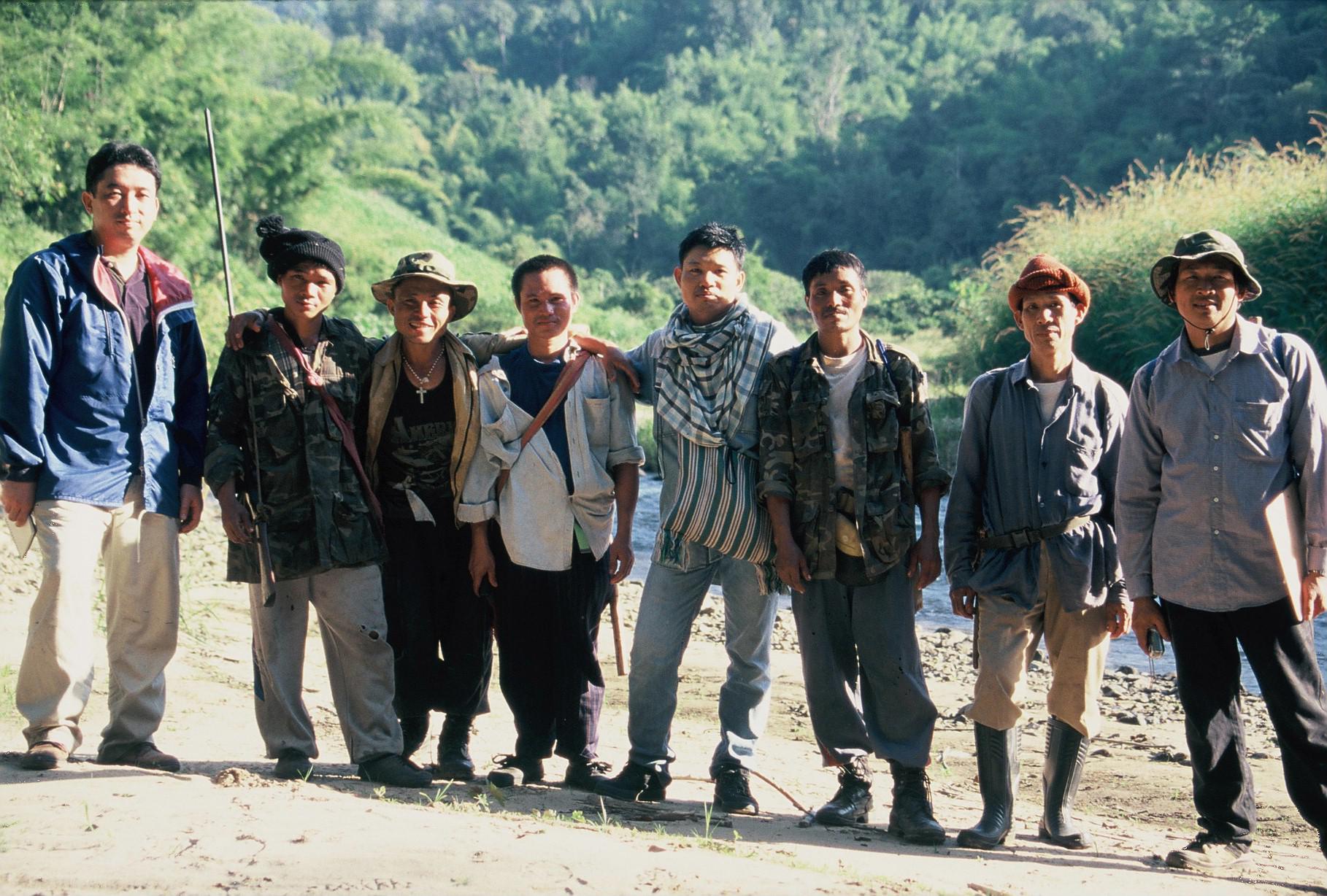
Conducting a survey of village borders and community forests by using GPS together with the villagers involved in forest conservation (Link activity, 2005).
I wished to engage in activities related to the issues of farmland and the environment at JVC. I made a proposal to launch a project to solve land issues and manage natural resources with the local residents. But at that time, JVC focused on the promotion of organic farming. Therefore, I left JVC and established Link (an NPO for linking forest, water, and people) in collaboration with peers in Thailand. We carried out various activities to improve the cash income of the local people, for example, through traditional weaving. Eventually, the focus of our activities shifted to the revitalization of the villages through land and environmental conservation by villagers.
– What do you think about the whole project you implemented in Link, from the survey of organic agriculture, support for income improvement, and the revitalization of villages with an emphasis on resource conservation?
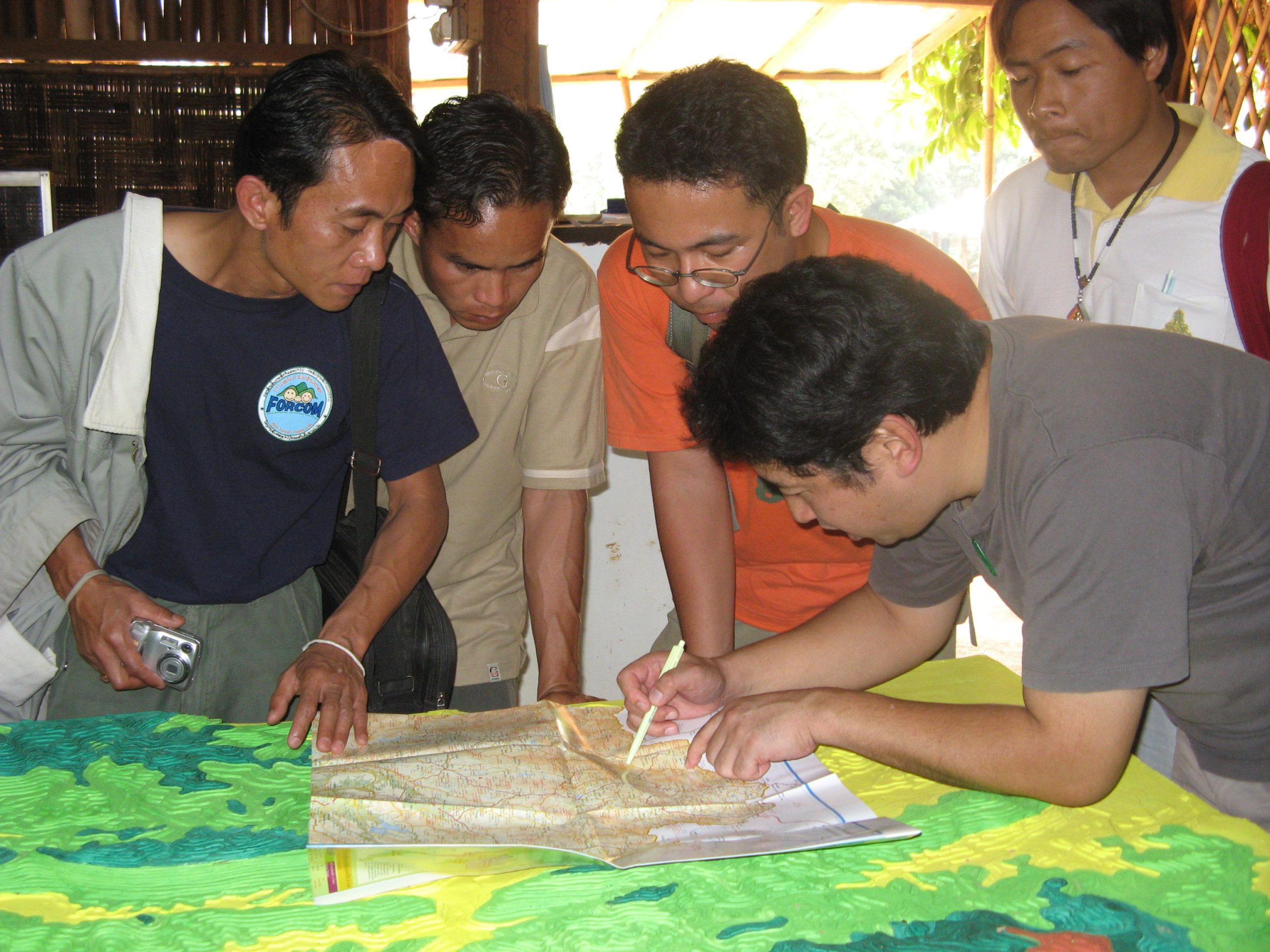
Kimura explained about the support of the villagers in resource conservation in Chiang Mai to a Lao administrator who visited the village (Link activity, 2007).
Since I specialized in geography, I was able to carry out the activities utilizing my expertise. I devoted myself to the issues making utmost efforts, but we faced failures every day. My realization on our ten years of activities is that we could have adopted better ways if we had read policies with keen insight and had acquired a deeper understanding of social trends thus clarifying the position of our activities.
Regarding the support of village revitalization, we made an Encyclopedia of Village for 21 villages, which include land-use maps, village history, and data on living creatures. It enabled villagers to effectively utilize village information for their community. Utilizing satellite photos taken in the past, changes in land use were mapped and used as a piece of evidence to show how much of the villager’s land was taken over to develop plantations. Based on river and irrigation routing, a possible cause of water contamination was clarified.
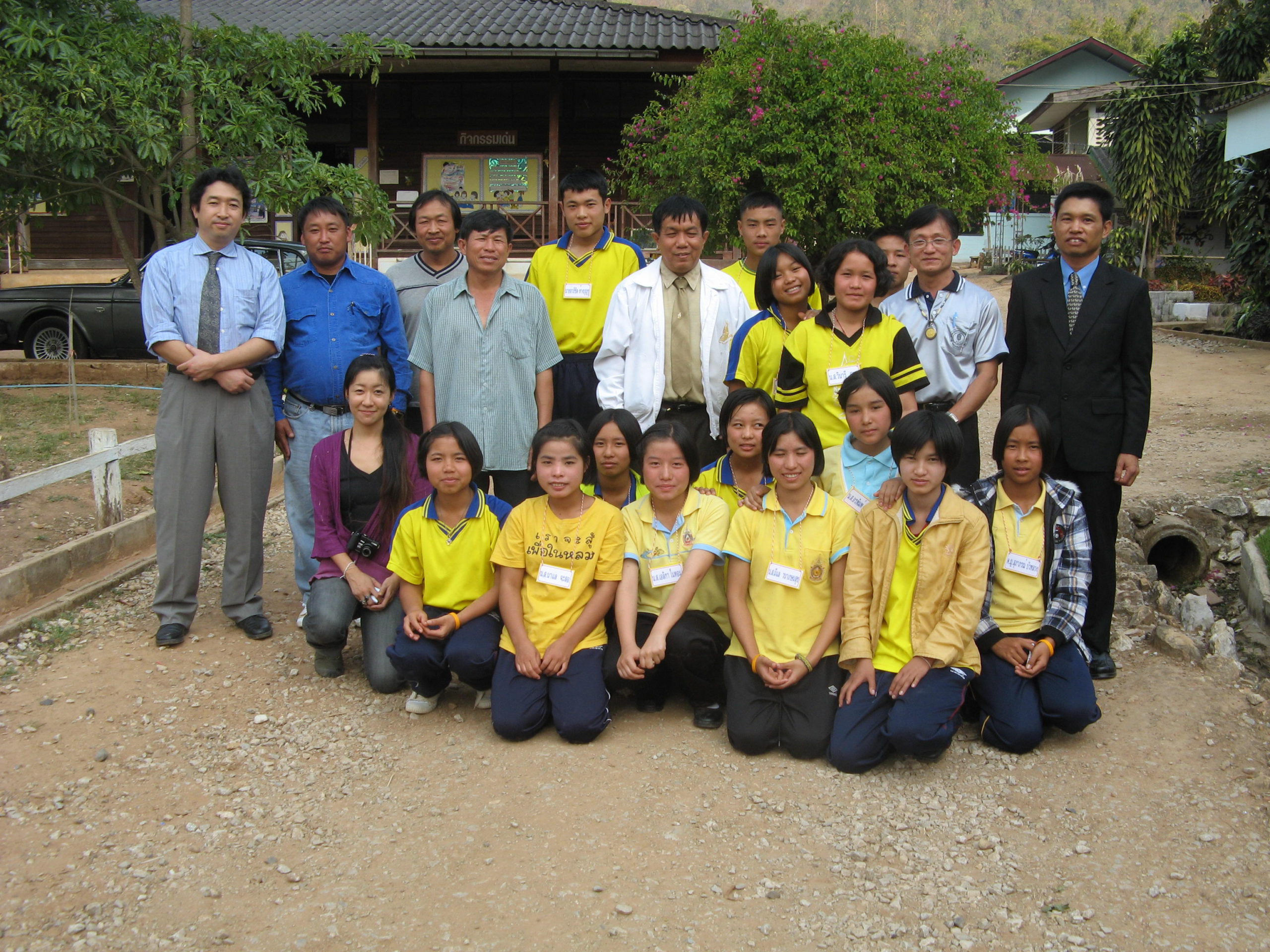
Promoting environmental education by developing network among teachers at junior high schools located in a mountainous area (Link activity, 2008).
In another case, the data on the increase and decrease in the number of living creatures in forests and rivers were used as a material for environmental education in a junior high school. In Japan, if you want to know about your region’s history, disaster risks, or evacuation sites, you can easily access such information because administrative maps are well developed and managed by the municipal office. But in Thailand, these information were not available 15 years ago. Therefore, we, Link, made booklets for 21 villages containing the above information and donated them to the respective villages, administration, and libraries. We would be very happy if they were used to help the villagers solve their problems.
Before returning to Japan, all the villagers of every village gathered together to bid me farewell. I miss them so much. Particularly, the Lahu village (on which I wrote my graduation thesis), the Khon Muang village (on which I wrote my master’s thesis), and the Pgaz K’nyau village (which helped me a lot in the Link activities) are like my own hometown. The experiences in these villages were indispensable for me to become who I am today.
I am curious about your identity because you have stayed in the specific villages in Thailand for a long time from your university days until now.
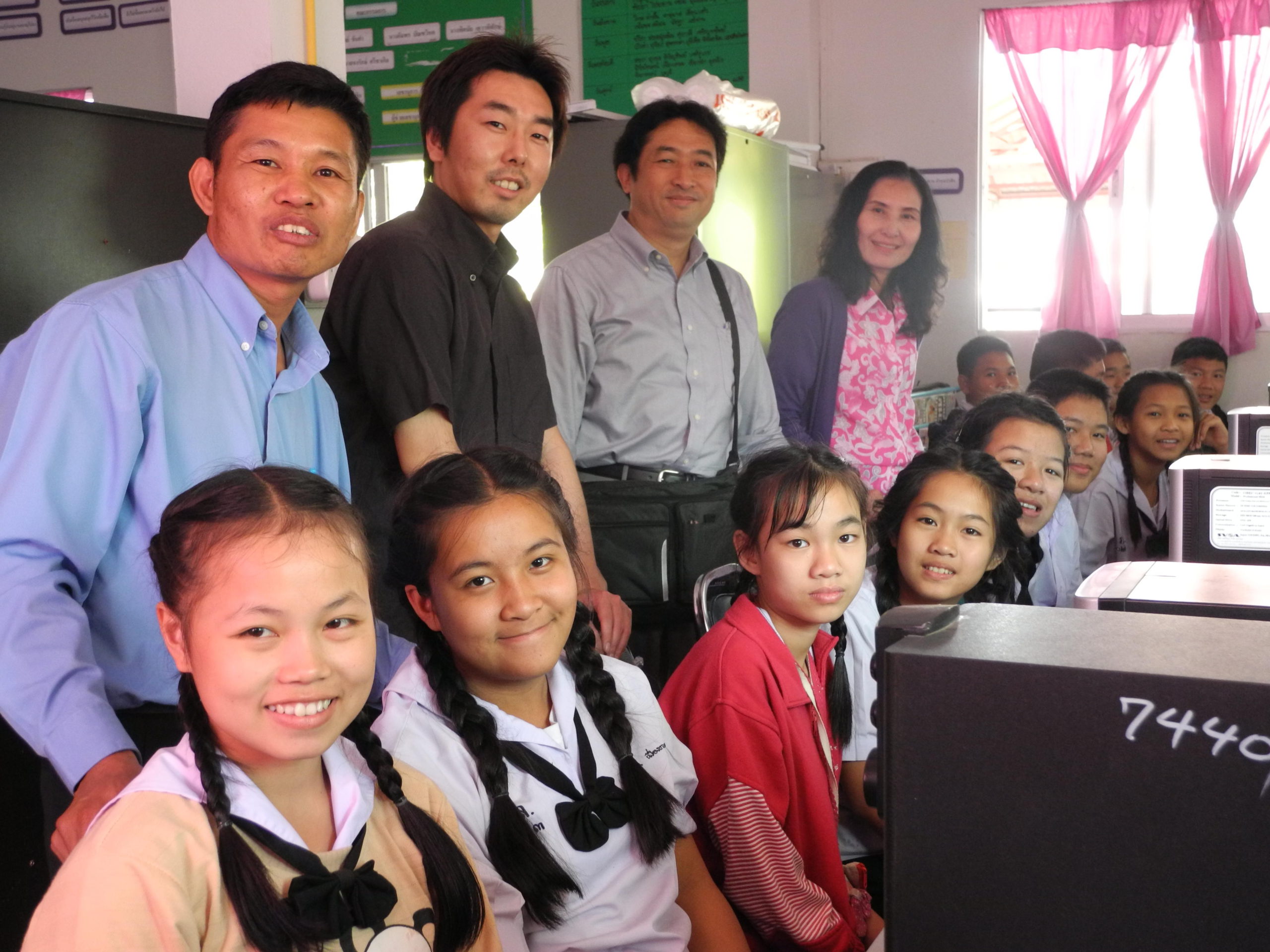
A trial lesson with PC on regional understanding at a junior high school (Link activity, 2013).
I may have lost some of my Japanese traits by associating with Thai villagers such as Lahu. It was inevitable for me to do so to live in a foreign village as a sole Japanese. I replaced my Japanese way of thinking with that of Thai. But even if I lost some Japanese traits, I am very happy to acquire different ideas, cultures, and customs and grow in diversity and richness in human qualities by mingling with other people. You can better understand other people through various experiences including painful and unpleasant ones. It was meaningful that I encountered and lived together with people from various backgrounds.
What does international cooperation mean to you?
I didn’t have any desire to engage myself in international cooperation. However, since I was conscious of Japan being an insular country, I had a strong desire to see the world and cross borders since my schooldays. I joined the exploration club in my university and went out to explore the world. The real world that I observed was far more interesting than the documentary programs on TV. Since then, I pursued the path of searching for my own way of life, which led me to where I stand now.
In the course of our missions, we sometimes get involved in social issues for which Japan has important implications. Including conflict issues, we need to properly learn the know-how and accumulate outcomes and experiences. Some people live in villages and others in cities. Various problems surround us such as environmental destruction, the limits of capitalism, and the widening gaps in society. I would like to continue to think about the ways of implementing international cooperation to build a society, where everyone mutually recognizes values and differences.
After the interview
Kimura says he wants to continue to work for the benefit of others because he has received assistance from many people till today. It is amazing that he diligently pursued his dream ever since his schooldays and accumulated a lot of experiences. I was impressed with his curiosity about different cultures flourishing in and out of Japan. I would like to have an in-depth discussion with him someday about the subject of multicultural coexistence.
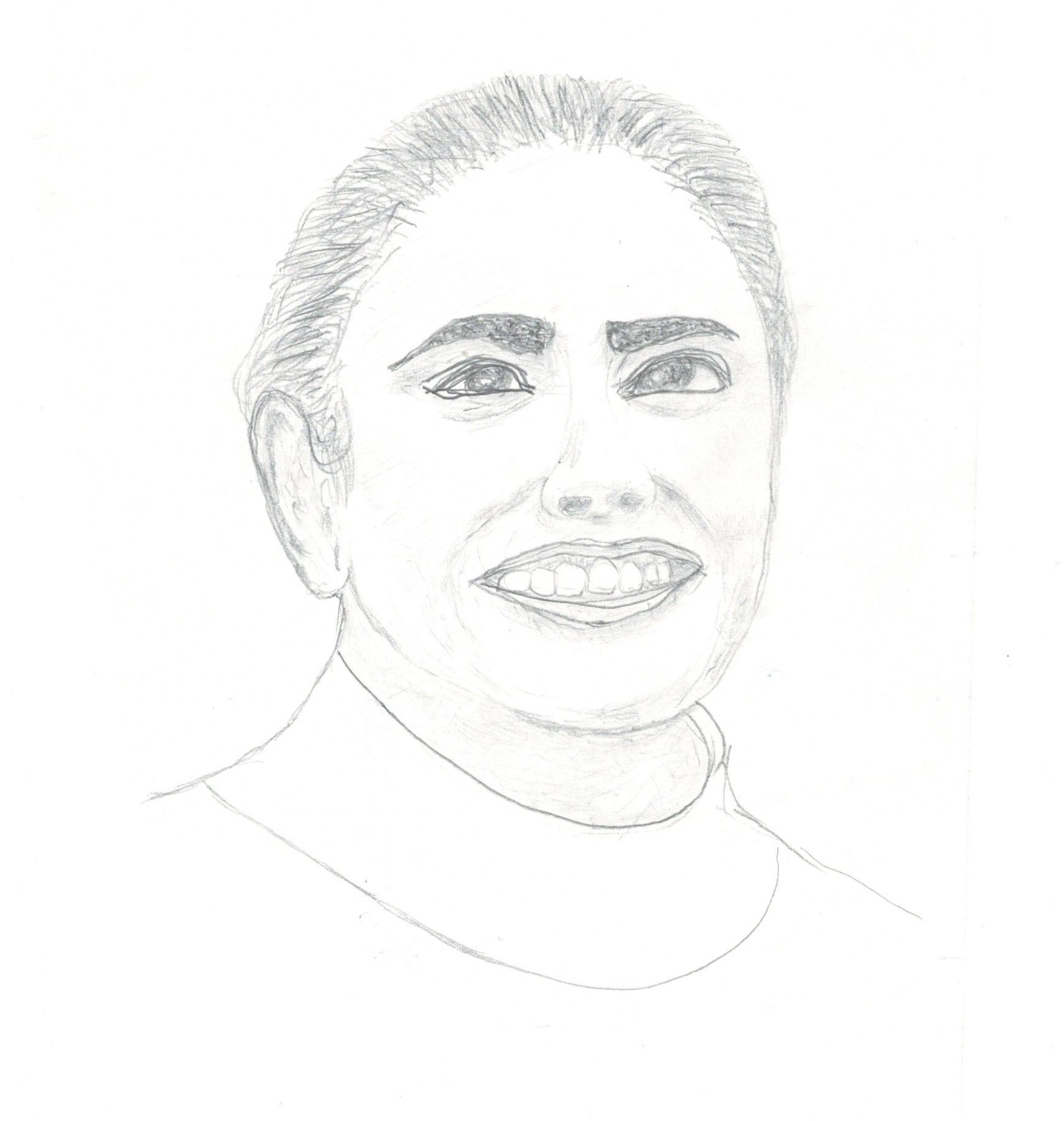
A portrait of the next interviewee drawn by Kimura. He has great skill in drawing!
